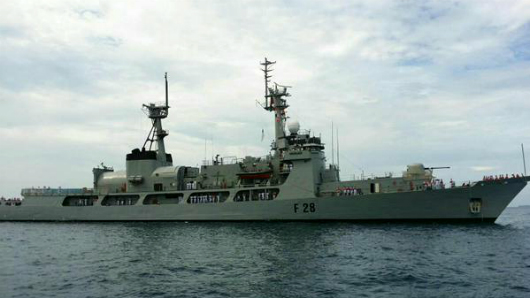The government’s failure to investigate and prosecute serious crimes is tantamount to “deliberate state-sponsored terrorism,” contends former President Mohamed Nasheed.
In a statement issued yesterday on the occasion of International Human Rights Day (December 10), the opposition leader accused senior government officials and elements of the police of complicity in abductions, murder, arson attacks, and gang violence.
“I note that the government has not investigated such incidents that have occurred throughout the year and serious criminals are on the loose. The state has not pressed charges against them,” the statement read.
Nasheed argued that the government’s inaction has caused harm and undermined fundamental rights, calling on the public to “find courage from each other for justice and stand up against inhumane torture.”
The opposition Maldivian Democratic Party (MDP) was formed to change the old system of governance and bring an end to ill-treatment and torture inflicted on citizens by the state, the statement observed.
“Custodial abuse was stopped under the MDP’s first government. Maldivians began to find hope and courage,” it continued.
“[But] the flame of hope is again flickering out.”
At a rally held last month to celebrate the current administration’s first year in office, President Abdulla Yameen pledged to crack down on violent crime and implement the death penalty.
“We have peace and order in Malé and all regions of Maldives. We have peace. However, this is not to say that isolated and significant dangerous crimes do not occur,” he said.
Unresolved cases
Nasheed’s statement went on to list serious crimes that have occurred in 2014, stressing that the perpetrators have not been brought to justice in the majority of the cases, including the stabbing of former MDP MP Alhan Fahmy on February 2.
An expatriate lorry driver was stabbed and robbed of cash and a mobile phone on January 25, the statement continued, while two days later, three men were stabbed in separate incidents in the capital Malé.
On February 3, a minor was assaulted with a wooden plank near the Adi Park in the Henveiru ward of the capital and sustained head injuries.
While suspects were taken into custody in some of the cases, Nasheed noted that none of the arrests led to criminal prosecution.
On April 12, former Gender Minister Dr Amaal Ali was robbed at knifepoint at her residence.
“On April 4, 2014, a 79-year-old was stabbed in Gaaf Dhaalu Thinadhoo,” the statement continued. “On May 18, 2014, Mohamed Naeem, of Baa Hithaadhoo Thiraa, was stabbed and injured in an assault inside a guesthouse in Malé.”
On July 31, a 35-year-old man was stabbed to death on the island of Thulusdhoo in Kaafu atoll and the suspect voluntarily submitted to police.
Two days later, two young men were stabbed in Malé, resulting in the death of 18-year-old Mohamed Mazin while undergoing treatment for stab wounds.
In the previous week, four men and a woman were assaulted in separate incidents. While one man was mugged in the Maafanu ward, two men were stabbed in Hulhumalé, a woman was stabbed in the back in the Galolhu ward, and a fourth victim was stabbed in the Henveiru ward.
On August 23, two men and a minor were assaulted and stabbed by masked men on motorcycles in the Dhidhi Goalhi in front of Iskandhar School in Malé.
One of the victims, Ahmed Aseel, 19, later died as a result of injuries sustained in the assault.
Police intelligence suggests that the spate of violent assaults in Malé since the beginning of Eid Holidays were gang reprisals “caused by a disturbance between two groups,” Chief Inspector Abdulla Satheeh told the press at the time.
More recently, a man was injured in a violent assault on October 3, a group of girls were attacked with a chain in Raa Madduvari on October 9, and a young man was stabbed near the police tow yard in Malé on October 26.
During the past month, two men were stabbed in a café in Malé on November 2 and a young man was assaulted with an iron rod in the Galolhu ward of Malé on November 16.
Earlier in the day, an 18-year-old man was arrested after entering the Bilabong International High School with a machete during a gang fight.
On December 7, a 28-year-old man was stabbed to death in Malé near the People’s Majlis building.
Nasheed also referred to the suspected abduction of Minivan News journalist Ahmed Rilwan 125 days ago, accusing the government of both negligence in investigating the disappearance and covering up the abduction.
Moreover, in June, a vigilante mob abducted several young men in a push to identify online activists advocating secularism or professing atheism.
Nasheed noted that police did not investigate the incidents despite media reports.
“During the past year, press freedom and freedom of expression have declined. Intimidation of journalists and youth active on social media have become commonplace. The government has obstructed peaceful political activity,” the statement read.
In October, Amnesty International called on the government to “intensify efforts” to find those responsible for death threats, abductions, and violent attacks against journalists, politicians, and civil society activists.
Related to this story
Yameen pledges to end violent crime at ‘Successful 365 Days’ rally
MDP condemns insecurity as PPM celebrates peace and order
Likes (1)Dislikes
(1)Dislikes (0)
(0) 
